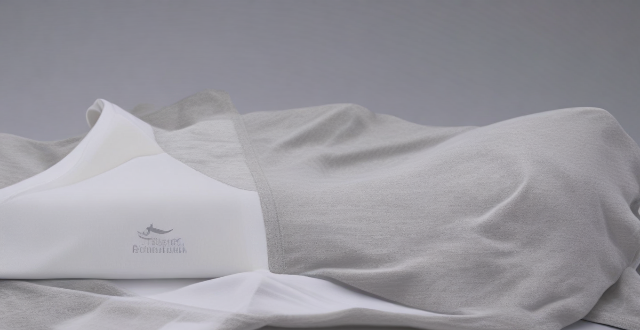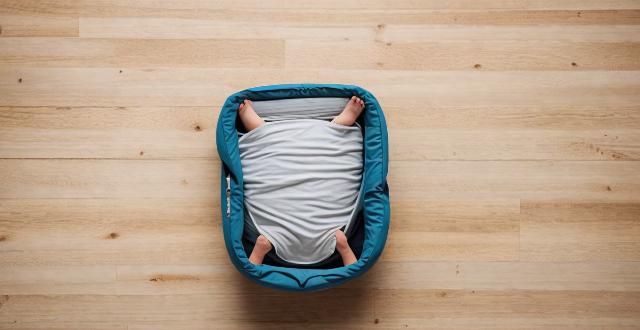Sleep Environment

How can I improve my sleep quality ?
Improving sleep quality involves establishing a bedtime routine, creating a comfortable sleep environment, limiting caffeine and alcohol intake, avoiding electronics before bed, exercising regularly, managing stress levels, and considering natural sleep aids.

How does shift work impact sleep patterns, and what can be done about it ?
Shift work can significantly disrupt sleep patterns due to conflicts with the natural circadian rhythm. Strategies for managing sleep disruptions include maintaining a consistent sleep schedule, creating a sleep-friendly environment, avoiding stimulants before bedtime, getting adequate exercise, and seeking professional help if needed.

How important is rest and sleep in sports recovery ?
Rest and sleep are crucial components of an athlete's recovery regimen, essential for muscle repair, CNS recharge, and mental clarity. Quality and quantity of sleep directly impact athletic performance through deep sleep phases and REM sleep. Practical tips include creating an optimal sleep environment, developing pre-sleep routines, and maintaining proper nutrition and hydration. Prioritizing rest and sleep is key to achieving peak physical condition and driving overall athletic success.

What are the best practices for infant sleep safety ?
Best practices for infant sleep safety include creating a safe sleep environment, following safe sleep positioning, ensuring proper room conditions, and monitoring your baby's sleep. These practices help minimize the risk of Sudden Infant Death Syndrome (SIDS) and other sleep-related deaths, promoting better quality sleep and overall health for newborns and young children.

What role does stress play in sleep disturbances and how can it be managed ?
Stress can significantly impact sleep quality by causing difficulty falling asleep, frequent awakenings, light sleep, and early morning awakenings. Managing stress through relaxation techniques, regular exercise, healthy eating habits, a consistent bedtime routine, a comfortable sleep environment, limited screen time, and seeking professional help when needed can improve sleep quality and overall well-being.

How can I create a sleep-friendly environment in my bedroom ?
To create a sleep-friendly environment in your bedroom, control the lighting, maintain a comfortable temperature, reduce noise levels, invest in a comfortable mattress and pillows, limit electronic devices, and establish a bedtime routine.

What is the ideal room temperature for optimal sleep ?
The ideal room temperature for optimal sleep is between 60-67°F (15-19°C). This range is considered to be the most conducive for a comfortable and restful sleep. The reasons for this include regulation of body temperature, improved REM sleep, reduced wakefulness, and comfort and relaxation. To achieve the ideal room temperature, consider using an air conditioner or fan, adjusting your bedding, dressing appropriately, and using a programmable thermostat.

How important is bedtime routine for improving sleep ?
The article discusses the importance of having a bedtime routine for improving sleep. It explains how a bedtime routine can help regulate the body's internal clock, reduce stress and anxiety, promote better sleep quality, and improve mental health. The article also provides steps for creating a bedtime routine, including setting a consistent bedtime, choosing relaxing activities, creating a comfortable sleep environment, and sticking to the routine consistently.

What strategies can help children develop good sleep habits ?
This article discusses strategies to help children develop good sleep habits, including establishing a consistent bedtime routine, creating a comfortable sleep environment, limiting screen time before bed, encouraging physical activity during the day, and maintaining a healthy diet. These habits are crucial for children's growth and development, leading to better physical health, improved cognitive function, and emotional stability. Parents should be patient and persistent in implementing these strategies, as it may take time for them to become established.

How do pets, especially dogs and cats, influence human sleep ?
Pets, particularly dogs and cats, can significantly impact human sleep. They can enhance feelings of safety and comfort, reduce stress and anxiety, and provide social support, leading to better sleep quality. However, they may also cause disruptions during the night, trigger allergies or respiratory issues, and affect temperature regulation, negatively impacting sleep. To manage these effects, pet owners should establish separate sleeping areas, maintain consistent routines, address health issues, consider allergy treatments, and adapt to their pets' needs.

How does sleep quality affect athletic performance and health ?
This text explains how sleep quality affects athletic performance and overall health. It emphasizes the importance of sleep for physical recovery, mental well-being, and immune system support in athletes. Poor sleep quality can lead to decreased performance, increased injury risk, and mental health issues. The text provides tips for improving sleep quality, such as establishing a consistent sleep schedule and creating a comfortable sleep environment. Adequate sleep is crucial for optimal athletic performance and overall health.

Can meditation or mindfulness practices enhance sleep quality ?
Meditation and mindfulness practices have been gaining popularity for their potential benefits on mental and physical health, including improving sleep quality. These practices involve focusing one's attention on the present moment while calmly acknowledging and accepting one's feelings, thoughts, and bodily sensations. Meditation and mindfulness can enhance sleep quality by reducing stress and anxiety, promoting relaxation, and increasing awareness of sleep habits. To practice meditation or mindfulness for better sleep, individuals should set aside time each day, choose a comfortable environment, focus on their breath, cultivate gratitude and positive thinking, and be patient and persistent in their practice.

What role does sleep play in exam preparation ?
The text discusses the crucial role of sleep in exam preparation, emphasizing its impact on cognitive functioning, memory consolidation, and emotional regulation. It outlines various benefits of adequate sleep, such as improved concentration, decision-making skills, learning capacity, and memory retention. Additionally, it highlights the importance of reducing anxiety, increasing motivation, and improving mood during the exam preparation process. The text also provides tips for achieving optimal sleep, including establishing a consistent sleep schedule, creating a comfortable sleep environment, limiting caffeine and nicotine intake, relaxing before bedtime, avoiding heavy meals late at night, limiting daytime naps, exercising regularly, and managing stress levels. Overall, the text underscores the significance of prioritizing sleep as an essential component of exam preparation for enhanced performance and well-being.

How does sleep deprivation affect muscle recovery after workouts ?
Sleep is crucial for muscle recovery after workouts, as it allows the body to repair and rebuild damaged muscle tissue. Sleep deprivation reduces growth hormone production and protein synthesis, leading to inefficient muscle recovery. Strategies for improving sleep quality include establishing a consistent sleep schedule, creating a relaxing bedtime routine, avoiding screens before bed, getting plenty of exercise, and creating a comfortable sleeping environment. By prioritizing sleep, you can improve muscle recovery and overall health.

What is the importance of sleep in the development of teenagers ?
Sleep is crucial for teenagers' physical, mental, and emotional development. It aids growth, strengthens the immune system, and helps with weight management. Adequate sleep improves memory, cognitive function, and emotional regulation. It also reduces stress, enhances social interaction, and boosts self-esteem. Parents should encourage good sleep habits to support their teenagers' healthy development.

What role does sleep play in managing stress ?
Sleep is crucial in managing stress by regulating hormones, improving cognition, promoting emotional stability, offering physical health benefits, and enhancing quality of life. Prioritizing sleep is key for effective stress management.

What role does sleep play in maintaining personal health ?
The text discusses the importance of sleep in maintaining personal health, including its roles in physical restoration and repair, energy conservation, weight management, memory consolidation, emotional regulation, cognitive function, stress reduction, mood stabilization, and relationship health. Adequate sleep is crucial for overall well-being, and prioritizing it can support physical, mental, and emotional health.

What is the relationship between sleep and recovery in high-level sports performance ?
Sleep is a vital component of recovery for high-level athletes, playing a significant role in muscle repair, energy restoration, immune function, cognitive function, and emotional well-being. Optimal sleep can lead to improved performance, reduced injury risk, enhanced learning and adaptation, increased motivation and focus, and better weight management. To maximize the benefits of sleep for recovery, athletes should establish good sleep habits such as maintaining a consistent sleep schedule, creating a conducive sleep environment, limiting caffeine and alcohol intake, practicing relaxation techniques, and avoiding naps or keeping them short and early in the day.

Can exercising too close to bedtime interfere with sleep ?
Exercising too close to bedtime can interfere with sleep due to factors like increased heart rate, elevated body temperature, release of stimulating hormones, activation of the nervous system, muscle soreness, and digestive activity. To avoid sleep interference, it's recommended to finish workouts at least 3 hours before bedtime, choose lighter exercises closer to bedtime, create a calming pre-sleep routine, and be mindful of post-exercise nutrition.

How much exercise is needed to improve sleep ?
The text discusses the importance of regular physical activity in improving sleep quality. It highlights how exercise can lead to better sleep patterns, faster sleep onset, deeper sleep, and improved sleep efficiency. The amount of exercise needed varies depending on individual factors, but general guidelines suggest at least 150 minutes of moderate-intensity aerobic exercise per week. Even small amounts of physical activity can have positive effects on sleep. Various types of exercise, including aerobic exercises, resistance training, yoga, and Pilates, can contribute to improved sleep quality. Timing your exercise sessions appropriately is crucial for maximizing their benefits for sleep improvement. Consistency is key when it comes to reaping the benefits of exercise on sleep quality.

How do sleep patterns influence memory retention from a scientific perspective ?
The text discusses the influence of sleep patterns on memory retention, emphasizing the crucial role of sleep in converting short-term memories to long-term ones. It explains the significance of REM and non-REM stages of sleep in consolidating different types of memories. The text also highlights the negative impacts of sleep deprivation on memory retention and suggests benefits of good sleep hygiene for enhancing memory consolidation.

Is there a link between sleep duration and sports injuries ?
This article explores the relationship between sleep duration and sports injuries, highlighting the importance of adequate sleep for athletes. Studies have found that both short and long sleep durations can increase the risk of injury, emphasizing the need for a balanced approach to sleep. Athletes are advised to establish consistent sleep habits, aim for 7-9 hours of sleep per night, and monitor their sleep patterns to minimize the risk of sports injuries and enhance performance.

What are the effects of poor sleep on endurance sports ?
Poor sleep can negatively impact endurance sports performance by decreasing athletic performance, impairing cognitive function, increasing the risk of injury, and elevating stress levels. Endurance athletes should prioritize getting enough high-quality sleep each night to optimize their physical and mental abilities while reducing their risk of injury and illness.

Is there a specific diet that can help with better sleep ?
Diet plays a crucial role in sleep patterns, with certain foods promoting relaxation and others disrupting sleep. The best foods for better sleep include turkey, milk, bananas, almonds, and chamomile tea, while caffeine, alcohol, spicy foods, sugary snacks, and heavy meals should be avoided before bedtime. Incorporating these dietary changes can help improve the quality of sleep and overall well-being.

Does exercise increase deep sleep ?
Exercise can increase deep sleep by promoting thermal downregulation and improving sleep efficiency over time. Regular exercise is recommended to enhance sleep quality, but timing is crucial to avoid sleep disruption.

How long should I nap during the day without affecting night-time sleep ?
Daytime naps can be advantageous for boosting energy and productivity, but it is essential to consider their duration to avoid impacting night-time sleep. The ideal lengths of daytime naps are the 20-30 minute power nap and the 90-minute recovery nap. It is crucial to avoid oversleeping during the day, which can lead to difficulty falling asleep at night. To make the most out of your nap time, find a quiet and comfortable place, limit caffeine intake, create a relaxing environment, set an alarm, be consistent, avoid napping too close to bedtime, and listen to your body. By following these tips, you can enjoy the benefits of daytime naps while still getting a good night's sleep.
